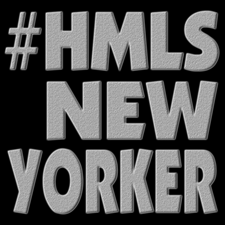The New York City Police Department has entered into a joint venture with Microsoft to create a data-collecting “super-computer.” The computer system will allow law enforcement to access live-video feeds from an extensive network of cameras. The “super-computer” will also reportedly be linked to crime-reports, radiation detectors, and license-plate readers. It will be able to […]
Read the rest of this entry »Elsie Law’s Dose Of The Law: Your Facebook “Friends” Can Grant The FBI Access To Your Profile
A New York City racketeering case garnered an interesting ruling that concerns facebook users. The defendant in the trial attempted to suppress evidence that was gathered from facebook to hand down his indictment. The defendant used the legal defense that the information, which was obtained via an informant giving law-enforcement investigators access to the defendant’s […]
Read the rest of this entry »Cell Phone Data Privacy & Law Enforcement
For the first time ever, cell phone companies were subjected to make an accounting of law enforcement requests for customer’s data. This accounting was ordered via a congressional inquiry. Reportedly, there were at least 1.3 million demands made by law enforcement for mobile phone users’ caller location, text messages, and other data. [SIDEBAR: It should […]
Read the rest of this entry »THROWBACK POST: Newsweek Asks: “Is Your Cellphone Spying On You?”
It’s common sense that a cellphone can be used as a tracking device. However, Newsweek recently published an article, “Is Your Cellphone Spying On You?”, that details how your cellphone can be turned into a truly invasive spying mechanism. According to Newsweek, “spy phone” software now makes it easy for anybody to infect any mobile […]
Read the rest of this entry »Is Apple Tracking Their Device Users Without Their Knowledge?
Apple Inc. has been subject to multiple lawsuits regarding privacy and spying issues. Recently, two computer security experts discovered that Apple was able to track the movements and actions of iPad, iPhone, and iPod touch users without the device owners being aware that the tracking was being done. The security experts discovered that Apple was […]
Read the rest of this entry »Conspiracy Theory or True Story: The Facebook Edition
While this video is clearly a parody, how much of it do you think actually touches on the truth? Tweet
Read the rest of this entry »

